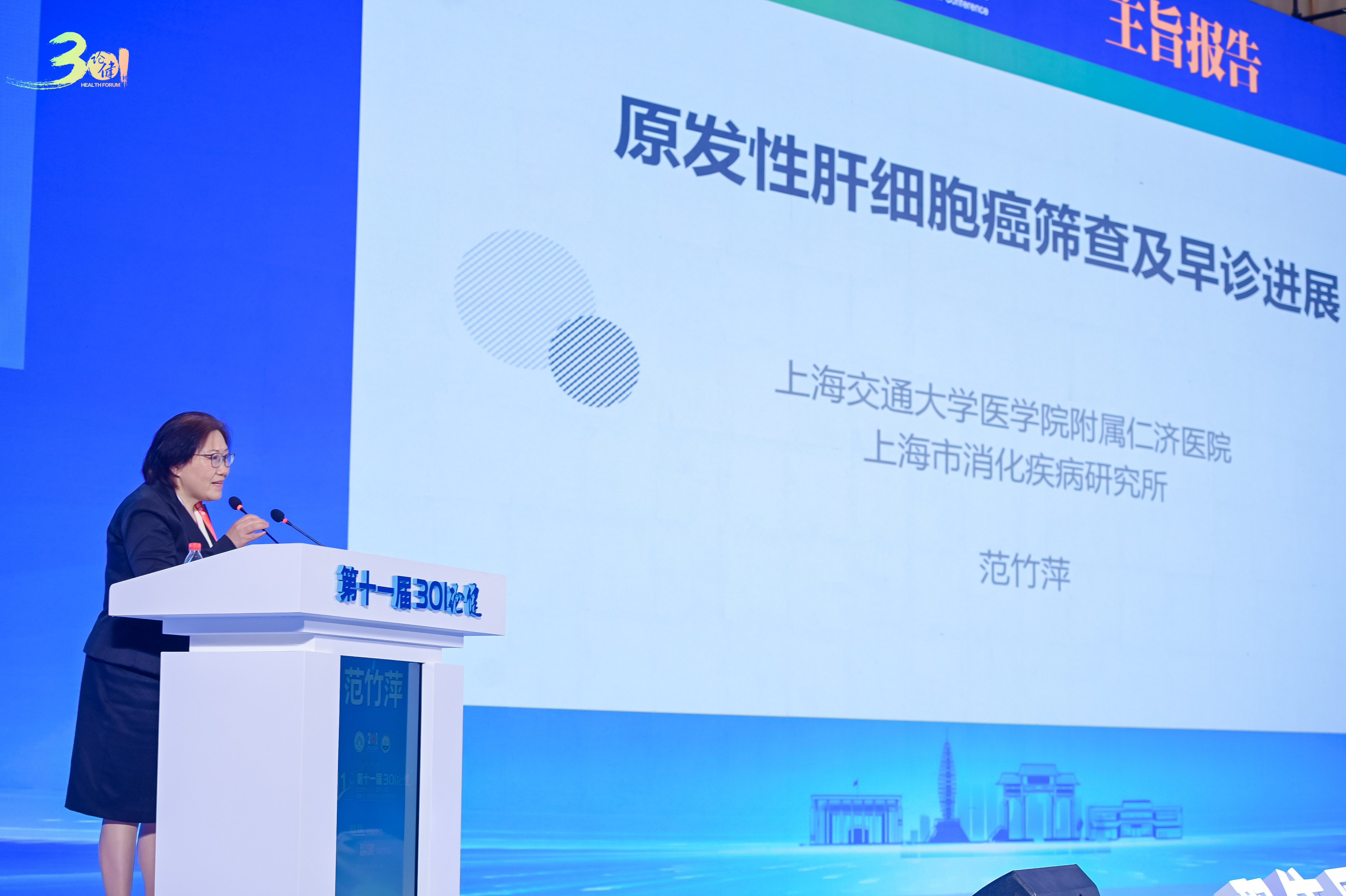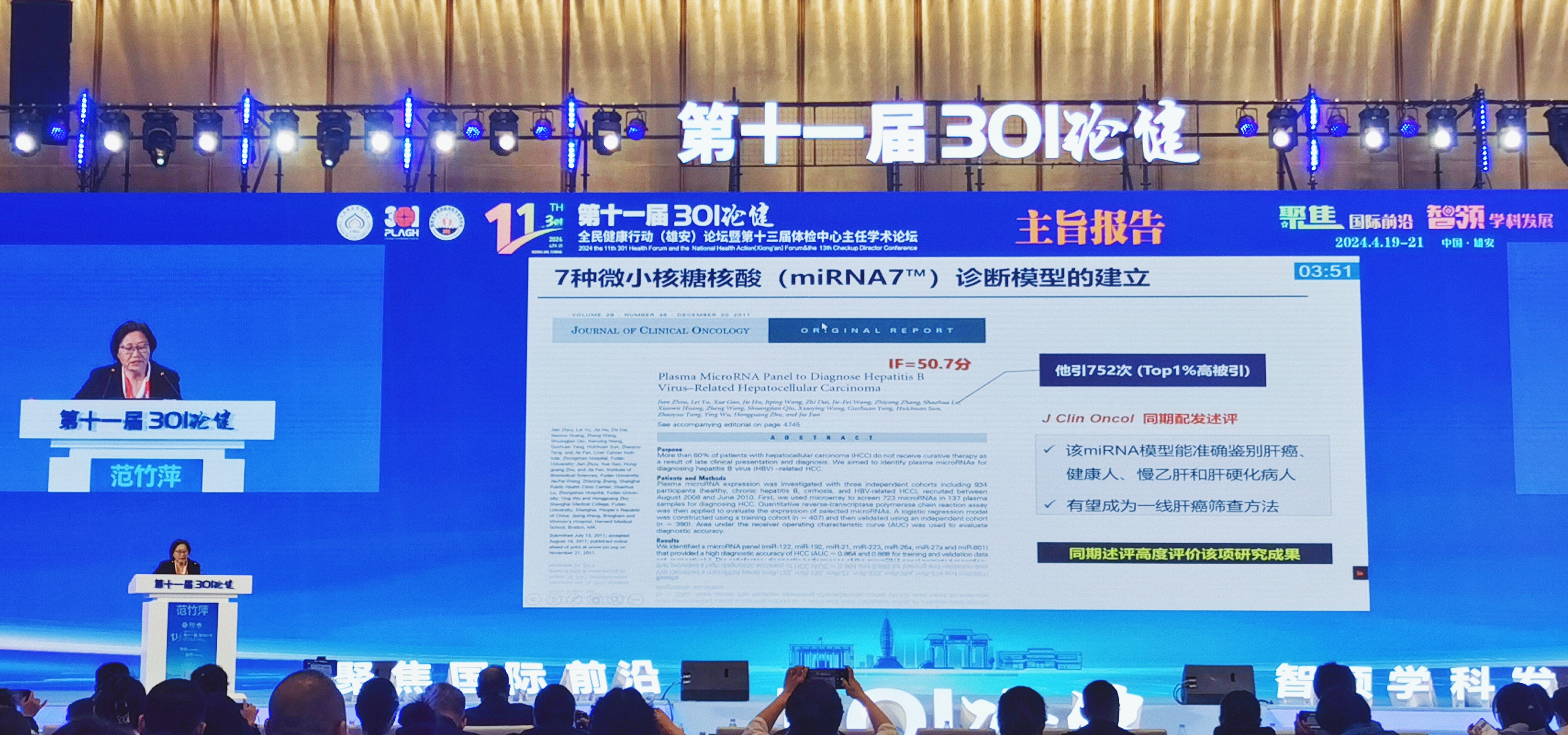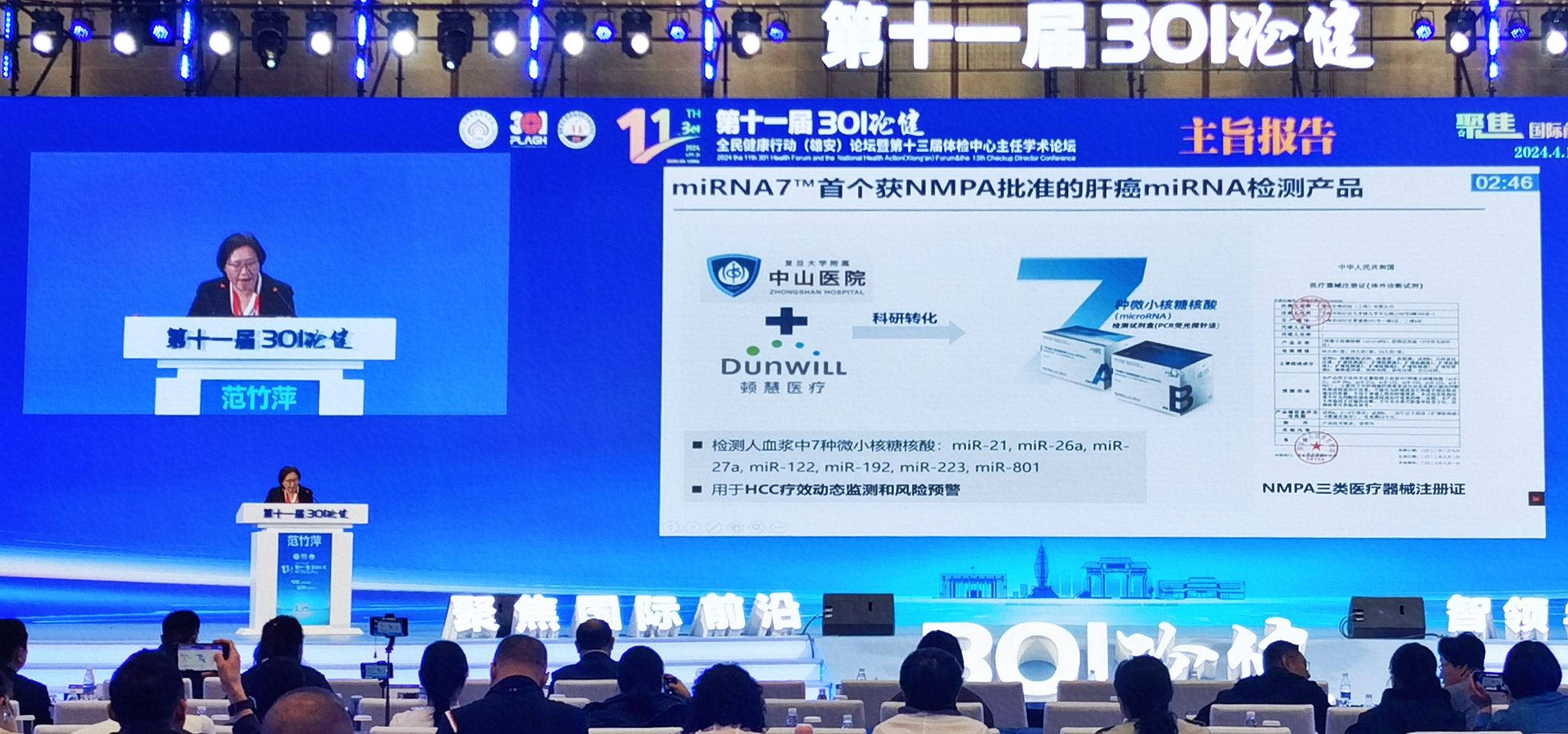Smart Gathering at Xiong'an, Health Empowerment for the Future | Highlights of the 301 Health Forum
On April 21, 2024, the 11th 301 Health Forum and the National Health Action (Xiong'an) Forum and the 13th Checkup Director Conference were successfully concluded in Xiong'an New Area. This forum fully showcases the new theories, technologies, practices, and progress of current health management, and jointly explores the in-depth implementation of the Healthy China strategy, playing a leading and exemplary role in promoting the development of China's health management industry.

At the keynote forum held on the morning of April 21st, Professor Fan Zhuping, Chief Physician of the Department of Gastroenterology at Renji Hospital affiliated with Shanghai Jiao Tong University School of Medicine, presented a keynote report on the “Progress of Screening and Early Diagnosis of Primary Hepatocellular Carcinoma”, focusing on the current status of liver cancer screening in China and the application of miRNA7 as a new blood molecular marker in liver cancer screening and early diagnosis.

Director Fan first introduced the current situation and main challenges of liver cancer diagnosis and treatment in China —— the 5-year survival rate of Chinese liver cancer patients is only 14%, 70-80% of liver cancer patients are initially diagnosed in the middle and late stages, and the 5-year survival rate of early liver cancer patients receiving curative treatment can reach 70% -90%; In addition, China has a total of approximately 17 million people at high risk of liver cancer, and the national medical burden is heavy. Traditional liver cancer screening methods have limitations such as strong invasiveness, low compliance, and poor sensitivity, leading to most Chinese liver cancer patients being discovered later and often missing the best diagnostic and treatment opportunities. Therefore, standardized screening and monitoring contribute to the early detection, diagnosis, and treatment of liver cancer, which is crucial for improving the efficacy of liver cancer and affecting the long-term survival of patients.

Director Fan pointed out that after screening and validation through thousands of large sample and multicenter studies, The diagnostic model of miRNA7™ can effectively identify early liver cancer and AFP negative liver cancer, the sensitivity and specificity of miRNA7™ for diagnosing liver cancer were 86.1% and 76.8%, respectively. The sensitivity and specificity for AFP negative liver cancer were 77.7% and 84.5%, respectively. (Evidence level 1, recommendation A). Therefore, miRNA7™ can greatly reduce the missed diagnosis of early liver cancer patients due to AFP negative in clinical practice, improve the overall detection rate of very early liver cancer, provide more accurate diagnosis for clinical doctors, and bring valuable treatment time to patients.
In addition, according to the recommendations of the Diagnosis and Treatment Guidelines for Primary Liver Cancer (2024 Edition), for serum AFP negative individuals, DCP and miRNA7™ detection kit based on 7 microRNA combinations can be used for conducting early diagnosis.

She further introduced that as the first Class III liver cancer molecular detection product approved by the National Medical Products Administration (NMPA) in China, miRNA7™ can be used for the full process management of liver cancer related populations, providing protection for the entire life cycle. Firstly, for primary prevention of liver cancer, it is recommended to choose miRNA7™ for annual physical examinations of high-risk populations for liver cancer as a mandatory test item, it can ensure detecting the risk of liver cancer at an extremely early stage; For secondary prevention of liver cancer, it can play a role in assisting diagnosis and improving the detection rate of people who missed diagnosis due to AFP and other protein tests; For the tertiary prevention of liver cancer, monitoring the recurrence of liver cancer patients after surgery can timely detect the risk of recurrence.

Finally, Director Fan concluded that the advantages of miRNA7™ in the full process management of liver cancer are prominent, especially in the very early stage of liver cancer patients and the detection rate of AFP negative, which can greatly improve early detection in primary and secondary prevention, reduce missed diagnosis, and at the same time, authoritative guidelines and multiple consensuses for primary liver cancer clearly recommend miRNA7 ™ can serve as an early marker for liver cancer and contribute to the early diagnosis of AFP negative liver cancer.
In the future, hope miRNA7™, the innovative cancer early screening technology will be widely developed and applied in clinical practice, effectively promoting the advancement of China's cancer early detection checkpoint, opening up a new pattern of cancer prevention and control in China, and continuously improving the national health level.





